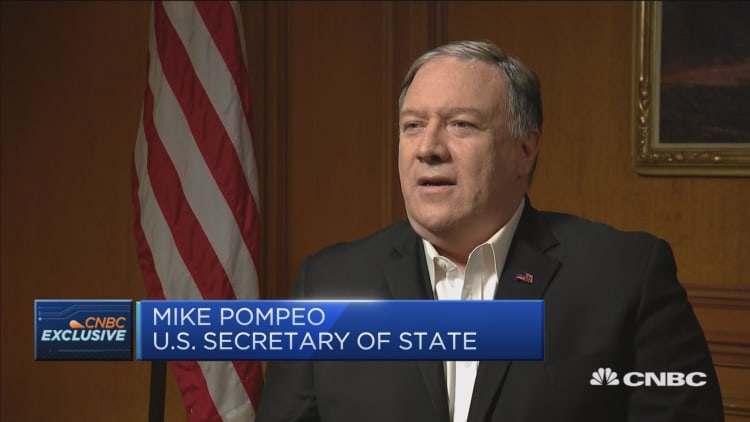DUBAI — Iran is officially ending one of its key commitments to the 2015 nuclear deal, local media reported Wednesday, citing a senior official at the country's Atomic Energy Agency.
A "program has been launched" to stop some of Iran's obligations on orders from the country's Supreme National Security Council, the Iranian Students' News Agency reported.
The official, who was not named, highlighted suspension of compliance with the nuclear deal's cap on enriched uranium and heavy water production.
Iranian President Hassan Rouhani announced last week Tehran's plans to abandon some of its commitments under the deal, officially known as the JCPOA (the Joint Comprehensive Plan of Action), in the face of crippling U.S. sanctions and the President Donald Trump administration's "maximum pressure campaign."
If Europe does not step in to protect Iran from those sanctions within 60 days, Rouhani said — salvaging trade with its oil and banking sectors in violation of U.S. rules — the country would return to higher levels of uranium enrichment, which would potentially pave the way for bomb-making capabilities.
Now, it appears to be scrapping that 60-day waiting period, according to the local report.

Iran has proposed exceeding its JCPOA enrichment cap of 3.67%, which is the amount allowed for civilian nuclear power development. Weapons-grade enrichment is 90%, but according to nuclear experts, reaching 3 to 4% enrichment equates to roughly two-thirds of the work done toward that 90% figure, as any increases beyond that seemingly small amount disproportionately speeds up breakout time.
Experts put the current breakout time for Iran reaching weapons-grade plutonium at one year.
The economic sanctions, which hit at numerous Iranian sectors but most significantly oil, went into effect last year after the Trump administration withdrew from the deal on the basis that it didn't address what it called Iran's "malign behavior" — support for militant proxy and U.S.-designated terror groups in the Middle East, ballistic missile testing, and human rights abuses.
The news follows weeks of increasingly provocative language exchanged between Washington and Tehran. Amid mounting tensions and a lack of diplomatic communication channels between the two, analysts and foreign officials fear a miscalculation or misunderstanding could spark a serious conflict.
Citing "very real" threats coming from Iran, but withholding specific details, Secretary of State Mike Pompeo emphasized during an interview with CNBC on Sunday that all options — military and otherwise — were on the table in case Iran "makes a bad decision."


